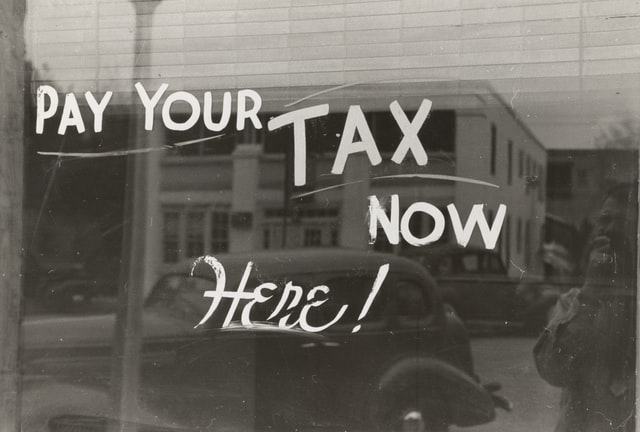There is a way for you to pay 10% or less on your next tax return. Sound too good to be true? It’s not. By finding a loophole in the tax code, you can take advantage of deductions and credits that are available to you. In this blog post, we will discuss how to find a loophole in the tax code and take advantage of all the benefits that are available to you!
1. What is a tax loophole and how can it save you money on your taxes?
There are many different types of tax loopholes: deductions, credits, and exclusions to name a few. By taking advantage of these loopholes in the tax code you can lower your taxable income which will result in paying less taxes (or even getting a refund!). To find out if there’s one that might work for you, consult with a tax professional or do some research online.

There are all sorts of deductions and credits available, but here are a few examples:
-If you have children, the child tax credit can save you up to $1,000 per child.
-The student loan interest deduction can reduce your taxable income by up to $2,000.
-If you’re self employed, the home office deduction can save you up to $3,000.
-And there are many more!
The important thing is to take advantage of every deduction and credit available to you, as they can add up quickly. For example, if you’re in the 25% tax bracket, a $2,000 deduction will reduce your taxes by about $500 (25% x $2,000 = $500)
How can I find out if there’s a loophole that might save me money?
There are many ways to learn about tax loopholes, and the best place to start is with your tax professional. They’ll be able to tell you what deductions and credits are available to you and how to take advantage of them. You can also do some research online, but be sure to consult with a professional before filing your return.
2. The most common types of tax loopholes and how to take advantage of them
- Deductions – A deduction is an amount that can be subtracted from your taxable income, lowering what you owe the IRS for taxes each year. The most common deductions are home mortgage interest (if you own property), medical expenses, student loan interest payments and charitable donations made to non-profit organizations like churches or charities.
- Credits – A credit is an amount that directly reduces the tax you owe each year, instead of being subtracted from your taxable income first like deductions do. The most common credits are for children under eighteen years old and people with disabilities who live at home full time (and their caregivers). Those two groups of people can get a $1,000 credit per child or dependent!
- Exclusions – An exclusion is an amount of money that you don’t have to include in your taxable income at all. The most common exclusions are for the sale of a home (up to $250,000 if you’re single and up to $500,000 if you’re married) and for contributions to a retirement account like a 401(k).
3. How to find a good tax preparer who knows about the latest loopholes and can help you save money
Not everyone is good at preparing taxes, and if you want to make sure that you’re taking advantage of all the deductions and credits available to you, it’s a good idea to find a tax preparer who knows about the latest loopholes. Ask around for referrals, or do a quick Google search for “tax preparer [your city]” to find a list of qualified professionals in your area.

When you’re looking for a tax preparer, be sure to ask them if they are up-to-date on the latest changes to the tax code and whether they know about any loopholes that might save you money. You don’t want to hire someone who is going to miss out on potential savings!
4. What to do if the IRS comes after you for using a tax loophole
Just because you found a loophole in the tax code doesn’t mean that you’re home free – the IRS may still come after you if they think you’re not following the rules. If this happens, don’t panic! The best thing to do is to talk to a tax professional who can help you figure out how to respond and get back on track with your taxes.
The important thing is to always be honest with the IRS, and if you’re not sure whether a particular tax strategy is allowed, ask for help. It’s better to be safe than sorry!
5. Examples of real people who have used tax loopholes to pay less than 10% in taxes
- Steve Jobs – The late CEO of Apple famously used offshore accounts and investments to pay far less than what most people owe in taxes each year. His strategy was legal, but it isn’t something that everyone can do on their own.
- Warren Buffett – This billionaire investor and philanthropist is known for not paying a lot of taxes, but he does it in a way that most people can’t. His tax strategy involves making charitable donations of stock instead of cash donations, which allows him to avoid paying taxes on the gains from those stocks (while also getting a deduction for his donation).
- Donald Trump – The former US president is another person who pays little or no taxes thanks to clever loopholes in the tax code. One of his favorite strategies is to use a limited liability company (LLC) to hold his businesses and investments, which allows him to avoid paying income taxes on those assets.
Although this article cannot cover every possible tax deduction or credit, it should give you a good starting point for reducing the amount of taxes you will have to pay on your next return. Stay tuned for more updates and tips from our blog that can help reduce your taxable income. And remember, if you are ever unsure about what deductions and credits you qualify for, be sure to consult with a qualified accountant or tax specialist.

Leave a Reply